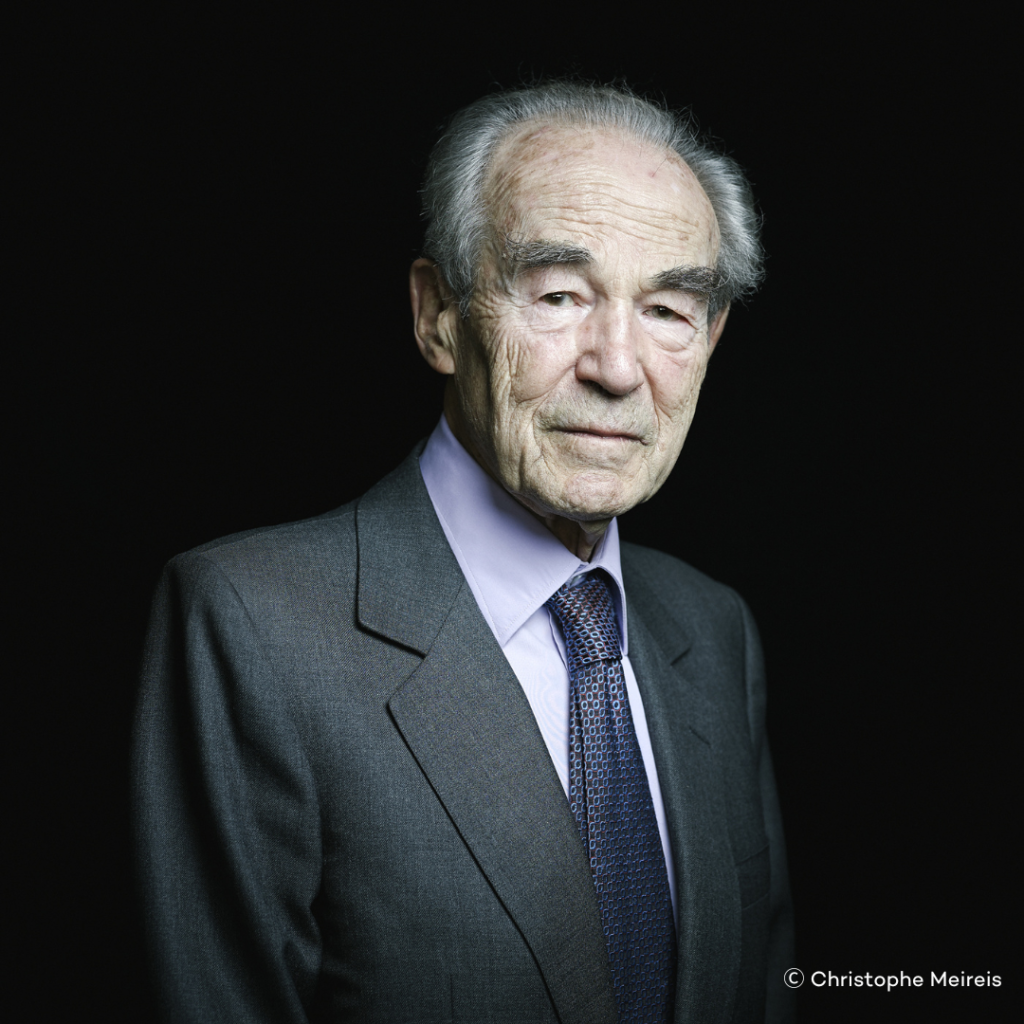
We have just learned of the passing of MR. Robert Badinter, what was your initial reaction to this announcement ?
I feel a great sadness, a sense of personal loss, an immense void, having lost my mentor, and more broadly, a loss for humanity, for France, for our values, our convictions, which he has accompanied throughout these many years of commitment.
Do you have a word to describe what kind of person Mr. Badinter was for the abolitionist community?
One word wouldn’t be enough to describe him… Robert Badinter was a determined man. A man of conviction. A man of knowledge, intelligence, and reason. He detested violence, stupidity. He was also a man of loyalty: loyal to his convictions, loyal to the organizations he supported, like ECPM, so it is very important to honor his memory. Robert Badinter was the beacon that helped us stay on course: now it is up to us to continue his fight and stay on course towards the universal abolition of the death penalty
Mr. Badinter was a major player in the abolition of the death penalty in France, but did his ambitions extend beyond our borders ?
Robert was a key figure in history, one of the prominent figures of the Fifth Republic. He served as the Minister of Justice who abolished the death penalty in France, the lawyer who fought in courts to spare individuals from the ultimate sentence. He influenced changes regarding the decriminalization of homosexuality, community service orders (TIG), prison conditions, and ultimately, a particular concept of justice and imprisonment. Most importantly, he embodied – both in France and worldwide – the struggle for the universal abolition of the death penalty. It was not merely a French endeavor; it was an international one. While the death penalty was abolished in France in 1981, it continues to be enforced in other countries, and Robert Badinter committed himself to our association to ensure that this fight transcended French borders. He represented this cause globally, carrying its symbolic weight, and it was remarkable to witness how resonant his name was among activists and advocates for the rule of law and justice, even in non-Francophone regions. He used to say, “The rule of law is not the state of weakness”: I have always held onto this phrase as a mantra.
Since 2001, Mr. Badinter served as the honorary president of ECPM. What did he represent for the members of the association? What legacy does he leave today for abolitionists?
Among all the battles Robert Badinter fought for the rule of law and justice, his key struggle was abolition. In a way, it’s a French story: he stands as a pivotal figure in it, inheriting the legacy of his illustrious predecessors. Victor Hugo, in his time, made the abolition of the death penalty a personal crusade to make France and the world better. He was followed by Albert Camus, a Nobel laureate, who also championed the abolition of the death penalty as the supreme value. Robert Badinter was part of this lineage of humanists, and we at ECPM see ourselves as his intellectual descendants, perhaps even the great-grandchildren of Victor Hugo and Albert Camus. Robert Badinter provided immense support, serving as a beacon for abolitionist activists worldwide. Beyond being an icon, he was the person who showed us the direction to take. He was always deeply engaged in the life of ECPM, its strategy, and its battles. He participated in almost all the World Congresses against the death penalty organized by our association.
Can we say that ECPM is somewhat a child of Robert Badinter? The death penalty was abolished in France in 1981, and ECPM was born almost 20 years later. How did this journey unfold, and in what ways are we the inheritors of this movement?
Yes, it’s fair to say that ECPM is somewhat a child of Robert Badinter. As you pointed out, the abolition happened in France in 1981, but it didn’t stop there. First, it needed to be enshrined in the constitution, and ECPM engaged in this movement in 2007, during Jacques Chirac’s presidency. We worked alongside Robert Badinter for this constitutional amendment. Then, it was necessary to ratify international protocols and subsequently, to make France the standard-bearer for global abolition, representing all the governments that have succeeded since 1981. Robert supported us in this endeavor; he always considered us his descendants because he knew that abolition had to be universal. This universality lies at the heart of the abolitionist struggle and our commitment. It is through this universalism that we have joined the family of Robert Badinter
You personally knew him, what memory will you keep of this man?
I used to see him very regularly, I would go chat in his apartment; he was extremely interesting and interested. He would tell many stories and embodies a significant part of French history on his own: he met all the key figures of the Fifth Republic, he accompanied them, and those were moments he enjoyed sharing with me. At the same time, deeply concerned about the turmoil of our times, especially the resurgence of multifaceted antisemitism or Islamist terrorism, he was very open-minded, particularly interested in knowing what the younger generations thought, how today’s activists were now leading the fight for universal abolition of the death penalty. I believe it’s this curiosity that will stay with me for the rest of my life.
Is there an anecdote you’d like to share about Robert Badinter?
There are a lot! But I’d like to share this one with you: we talked a lot about François Mitterrand, both his good and bad sides. On the day of his election as head of the country, May 10, 1981, he turned to Robert Badinter and said, “You’re going to get your abolition!” He got his abolition, and it’s quite incredible.
